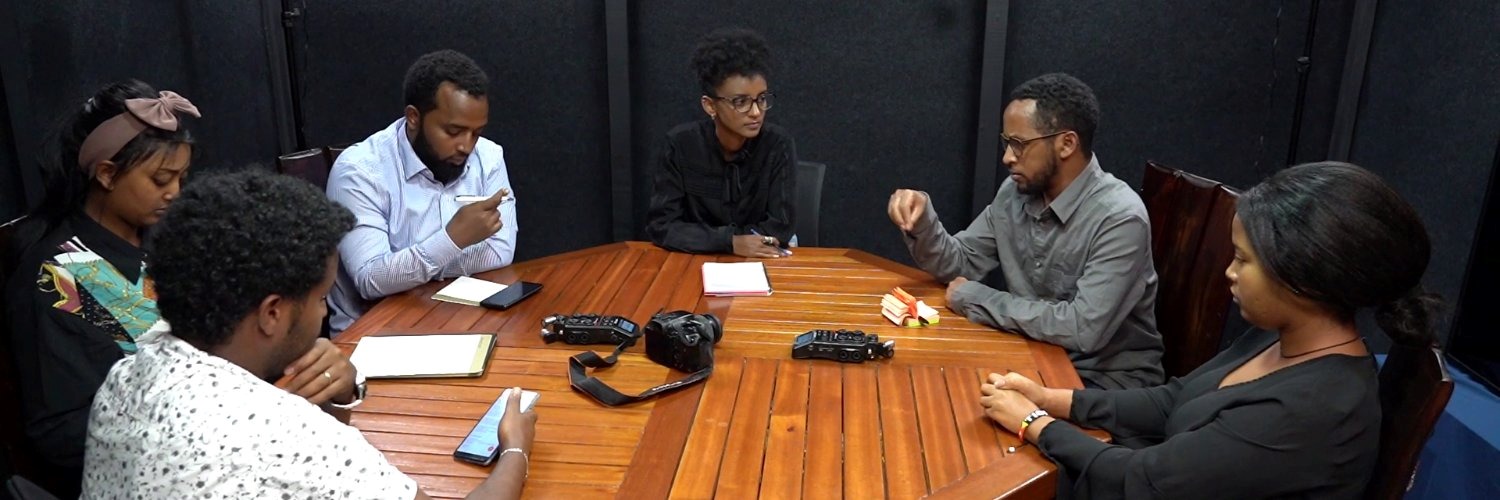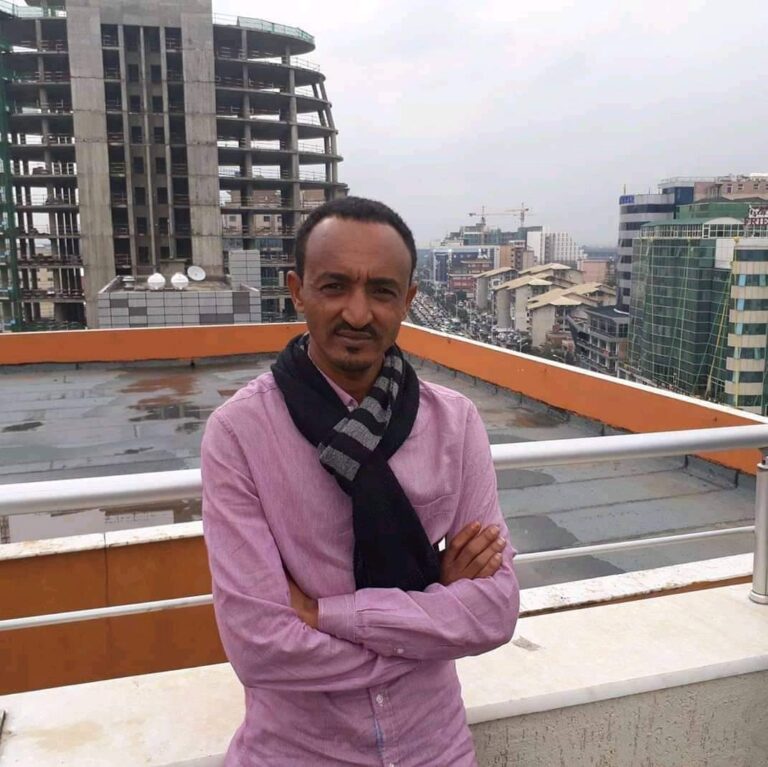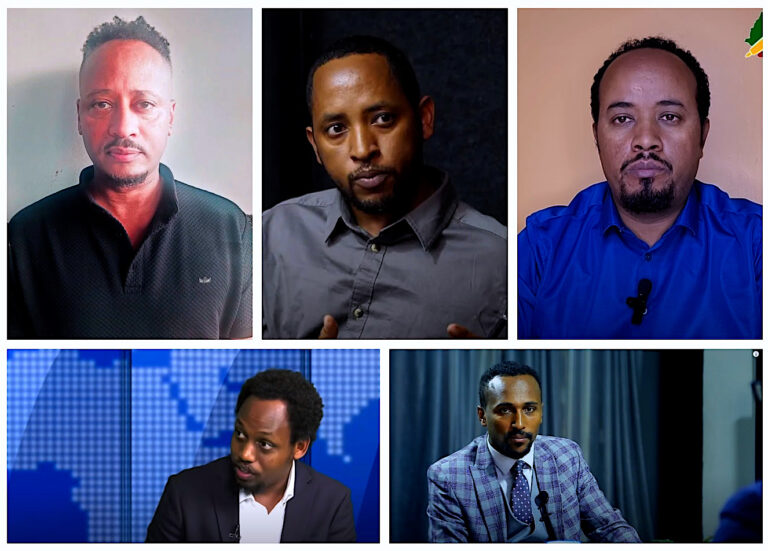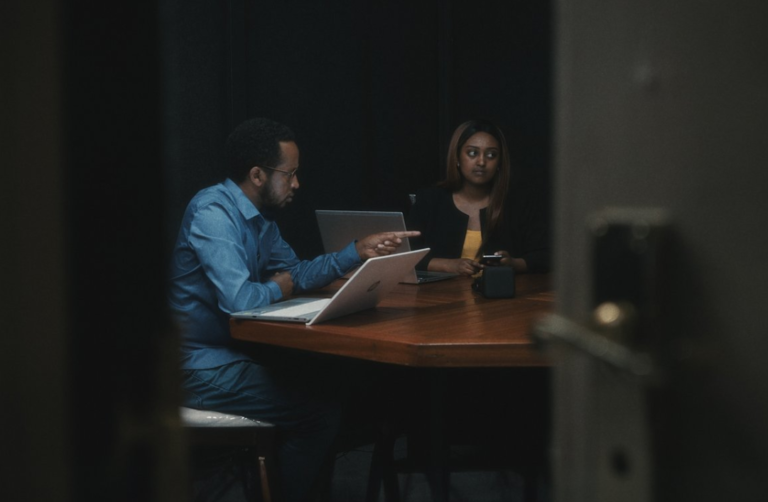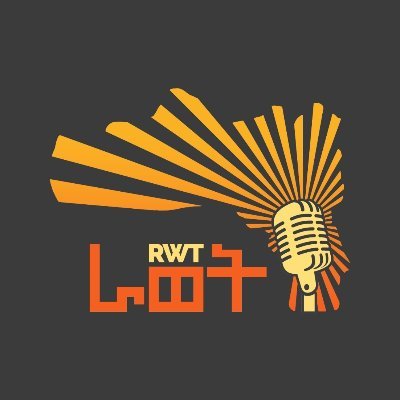Exiled but Not Silent: The Perils and Possibilities of Journalism in Exile
A personal account
While it is true that a change in government can bring about positive developments, it is not always a guarantee. History is riddled with instances where changes in power led to disastrous outcomes. Take, for example, the rise of the Nazi party, which gained power through democratic means, only to inflict unspeakable atrocities upon millions. Or consider the Arab Spring, a movement that was once filled with hope for democracy and change, but ultimately resulted in a series of regrettable events across many countries. Clearly, simply swapping out one group of leaders for another does not always guarantee a better future.
This has also been the case in Ethiopia under the current ruling group. The much-touted change in 2018 proved to be not about inclusiveness and democratization, but rather a change in leadership and the domination by those who claimed to had been oppressed. Abiy Ahmed Ali’s appointment as Prime Minister brought hope to some but ultimately resulted in a weakened Ethiopia in terms of influence, image, development and national unity.
Much worse, ethnic and political groups, like the Tigrayans, suffered from unspeakable atrocities such as ethnic cleansing, systemic rape and sexual violence against women and girls, intentional destruction of critical infrastructure, environment and habitats, looting of both public and private properties, weaponized starvation, and a complete blockage of essential services such as banking, telecommunication, transportation, electricity, and budget for over two years. These actions can only be described as genocide in its most horrific form, all while the world claims to value human rights and pledges to never allow such atrocities to happen again.
After being selected as chairperson of the Ethiopian Peoples’ Revolutionary Democratic Front in March 2018, a party that ruled Ethiopia since 1991 under a federal system, and Prime Minister of Ethiopia in April 02, 2018, Abiy Ahmed promised to introduce a series of reforms, including greater freedom of expression and media, political inclusivity, and reconciliation. He initially projected a positive image by releasing political prisoners, unblocking websites, and allowing previously shut down media to operate. He also welcomed exiled political groups and media back to Ethiopia and initiated relations with Eritrea after 20 years, which ultimately earned him a Nobel Peace Prize.
However, what was not apparent and of little concern both inside Ethiopia and internationally was the Prime Minister’s silencing of other voices and media. One of the first victims of this censorship was the Ethiopian News Network (ENN TV), which was shut down just three months after the Prime Minister came to power, and later many others.
As the newsroom manager and in-house training and planning coordinator for ENN TV, I can attest that it was one of the private media outlets in Addis Ababa that focused on news and political content with a critical approach. The media had 110 employees who suddenly found themselves jobless overnight, as they were falsely accused of instigating ethnic conflict and being highly paid in town due to their affiliations with the previous government. Although the media’s refusal to be co-opted and change its programs to entertainment was the main reason for the shutdown, the false allegations made by the government compounded the situation nationally and made the life of journalists difficult afterwards.
The Prime Minister deceivably employed the concept of media capture, targeting most private media institutions owned by the elite urbanites in the country, as well as those in overseas exile for long periods, who had been opposing the previous government. He did this by co-opting journalists and their institutions, and also controlled state media institutions to use them as propaganda machines, just as his predecessors had done.
Media leaders and journalists who refused to be co-opted were not favored by the populist approach of the new leader, and they even faced attacks from citizens supporting the new government. Under such a threatening media atmosphere, I decided to join and lead Awlo Media Centre, an online platform that planned to have its own TV and radio station situated in Addis Ababa. However, the platform was under surveillance by the regime due to the owner’s ethnic background, which made it a suspect.
Long-time Friends and Political Allies, Became Arch Enemies and Adversaries
From the start of the popular protests demanding often not well defined or articulated ‘reforms’ – certainly since 2015 – the internal power struggles within the ruling coalition, the Ethiopian People’s Revolutionary Democratic Front (EPRDF), had been evident. The Tigray People’s Liberation Front (TPLF) that represented one faction and the other three coalition partners, who were supposed to represent the Oromo, Amhara, and ethnic groups from the south, would often be engaged in infighting.
Opposition groups, self-styled activists, and nationalist-leaning elites from the Amhara region quickly united behind Prime Minister Abiy Ahmed, with many believing that he would be their ally in abolishing the multi-ethnic federal structure and its legal and conceptional basis, the 1995 Constitution, which they have considered the root of society’s problems.
These political forces and elite groups tend to be nostalgic for the times of the monarchy, and will usually lay claim to territories once annexed and administered by officials appointed by the monarch – who would typically be assimilationists and detested by other ethnic groups. Amhara nationalists are usually convinced that these territories must now rightly be incorporated into the Amhara regional state, and will often refer to them as ‘disputed territories’ to further legitimise their claim.
Yet another potential danger was the fact that the dictatorial regime of Eritrea’s long-time ruler had been pushing the Abiy government to attack the TPLF. President Isaias Afwerki, who has ruled Eritrea since its independence from Ethiopia, had considered the TPLF the main force within the EPRDF coalition during the Ethio-Eritrean border war; which Ethiopia had won, and the status that was its result it subsequently enforced, despite the signing of the Algiers Agreement. Ultimately, this led to a peculiar situation, where, under the leadership of Abiy Ahmed, the Ethiopian government would end up conspiring with a de facto hostile foreign force, to be able to attack a fellow political group in revenge.
In late 2019, under Abiy’s direction and political manoeuvring, three parties of the EPRDF coalition invited other regional parties that had not been part of the coalition to form a new political party, the Prosperity Party. It has been led, increasingly autocratically, by Abiy Ahmed ever since. Only the TPLF chose not to join the rebranding in name and political philosophy, citing ideological and tactical differences. This left them and their societal base – the Tigrayan ethnic group and its political allies – dangerously exposed, and potentially vulnerable to further attacks.
To make a long story short, a combination of various political and ideological differences, including around the state-building process, economic policies, and competition of global powers over the horn region, as well as power struggle within the ruling coalition, as finally manifested itself in legal disputes over postponing national elections, led to a genocidal war in November 2020.
The decision of the TPLF, as the ruling party of the Tigray region, to hold a regional election in Tigray, which many argued was constitutionally mandated, despite objections from the federal government that controversially postponed the national election under the pretext of the COVID-19 pandemic, along with the pre-emptive self-defense measures that Tigray forces took against federal forces who were encircling the region to topple the regional leadership by force, were the most immediate triggers for the war. Unprecedented in modern Ethiopian history in both magnitude and intensity, the war has been devastating especially for the people of Tigray.
War led to widespread arrest and persecution of Tigrayans and journalists
On November 3, 2020, when Abiy Ahmed Ali declared war against the self-administration in Tigray, one of the regional states of Ethiopia, I was working as the managing director of a local media company called Awlo Media Centre in the capital city, Addis Ababa.
The following day, in the early morning, three uniformed police officers and one plain-clothed officer arrested our editor-in-chief from his office. They did not produce a warrant, refused to answer questions about why they were taking the journalist into custody, and warned other staff members not to talk about the arrest. The officers also searched the offices and seized equipment, including three laptops, the editor’s phone, a hard disk, notebooks and scripts, and a sound recorder. This incident was also reported by CPJ at the time.
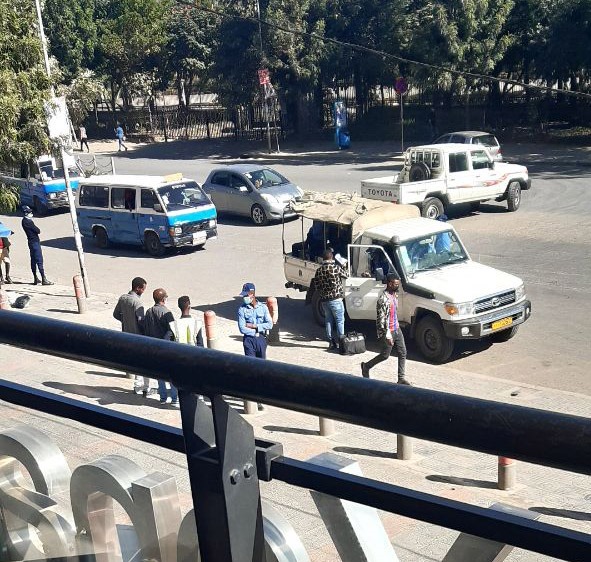
At the time, I was at home and was immediately informed by my colleagues not to come to the office. I had to hide away from home to avoid arrest. After six days in custody without formal charges, the editor was accused of disseminating false information, smearing the government, inciting ethnic violence, and having contact with the TPLF, the political party governing Tigray. After three weeks, he was released on bail.
I then appeared in public, hoping that things would ease for us. However, I was briefly detained for a night and released the next day with a warning not to write anything against the government. It was a time when the government was under pressure from many international actors to stop the mass arrests against Tigrayan residents of Addis Ababa and other parts of the country, as well as all former members of the defense and federal security forces. The death toll of civilians following the fall of Mekelle under federal troops and their allies was also shocking.
In fact, we were under pressure even before the genocidal war broke out. I received a warning over the phone from a government official with an “unknown” caller ID two Fridays before the arrest of our editor-in-chief. The warning was against balancing our news with information from the Tigray leadership.
Additionally, on September 07, 2020, three of our staff members, along with a group of reporters including from VOA and a senior think tank analyst from International Crisis Group, were stopped at Bole International Airport in Addis Ababa and barred from traveling to Tigray to cover the regional election held on September 09, as reported by Reuters. The federal government deemed this election illegal, and it was clear that they did not want journalists reporting on it.
As a Tigrayan journalist in Addis Ababa, life had become unbearable for me. The closure of our media and the seizure of our equipment by police had left me frustrated and hopeless. On top of that, the ethnic profiling and persecution against Tigrayans throughout the country had made me feel stateless. I decided to flee to Nairobi, Kenya in the hopes of reporting about the war and advocating against it from a distance.
On December 13, 2020, I made my way to Bole International Airport, filled with anxiety and hoping to slip out of the country undetected. I had a support letter for a three-month research fellowship from an international research institute based in Nairobi, but I knew that my Tigrayan identity and journalism profession could be a problem.
My fears were confirmed when the security personnel at the airport noticed my Tigrayan name on my passport and became suspicious. He checked my national ID card and saw that I was a journalist, making me a qualified criminal suspect in his eyes. He stranded me and began asking me numerous questions while exchanging information over the phone with officers in the intelligence office in the city. I tried my best to convince him to let me go, showing him my support letter for the research fellowship. He even checked his computer several times for my name on the long list of banned individuals from travel, but couldn’t find me there either.
Despite this, he informed me that his colleagues at the Ethiopian National Intelligence and Security Service wanted to further investigate me and instructed me to return home and be placed under house arrest until a decision was made on my case. He took my mobile number and email address and told me that they would inform me within eight days about my travel status. If they couldn’t come up with a decision, I would be free to fly.
After my hopes were dashed at the airport, I returned home and waited anxiously for the police to come and arrest me. That evening, I discovered that my telegram had been hacked. I sought the help of CPJ’s cyber safety experts in Nairobi, and after four hours, we were able to restore it.
I sent daily text messages to the security officer at the airport, hoping to receive updates on my situation and an explanation for my house arrest and travel ban. However, he instructed me to stop sending messages and wait for his call. As the seventh day came to an end, I called him to ask if I could prepare my flight ticket, but he told me to wait again. At that point, I had lost all hope. To my surprise, on the ninth day, he called me and informed me that I could fly the next day. Fortunately, the intelligence officers did not have the time to thoroughly investigate my case, and it was up to the officer’s discretion to allow me to leave, which he did. I finally arrived in Nairobi on December 23, 2020.
In retrospect, I am glad that I left the country as early as possible. Weeks after my departure, the government imposed a total travel ban on ethnic Tigrayans, and mass arrests became more common. After their brief return to work, I learned that 12 staff members of the Awlo Media Center, along with many others, had been arrested and detained for two months without any charges in a remote and harsh environment. The media continues to be shut down by the government to this day.
Forced into Exile: Seizing the Opportunity to Amplify Voices Under Siege
Life as an exiled journalist in Kenya began when I received my asylum seeking pass certificate and exemption pass, allowing me to move from living in refugee camps to living in Nairobi. After working as a research assistant at a research institute, and a freelance writer for some media and human rights institutions, translating and transcribing information about the war, I began contemplating establishing my own media outlet.
With the help of concerned individuals in the Tigray community, I founded Axumite Media, which later became Yabele Media. We officially began operating with an online presence on YouTube, Website and other social media platforms on March 20, 2021, inviting seven other fellow journalists and a director who had escaped arrest, ethnic profiling, and horrors in Tigray and Addis Ababa to join us. Among them, three were women.
We built a small mobile studio on our residential floor and produced a daily news and analysis program of 15 to 20 minutes, along with five other regular programs in Tigrigna and Amharic languages.
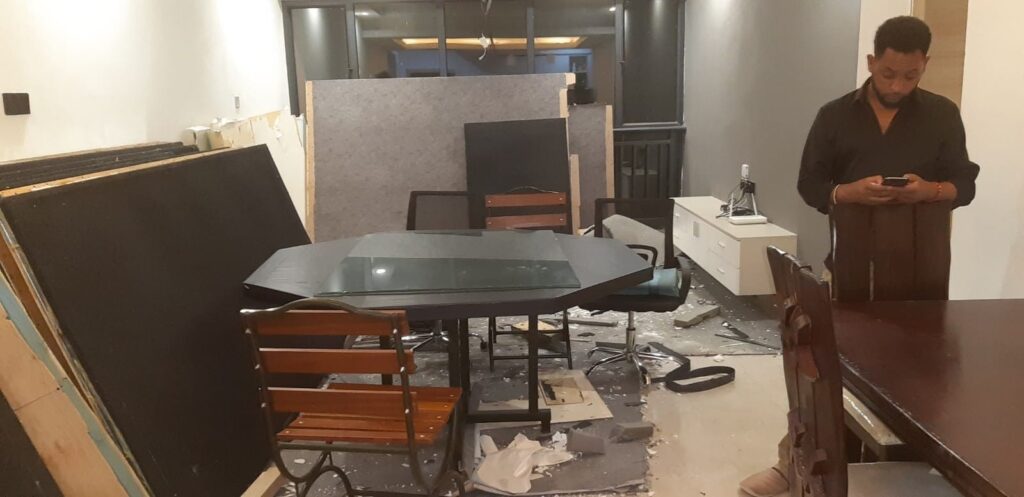
Our goal was threefold: to uncover the atrocities, massacres, rape, and human rights violations, as well as the ramifications of the ongoing genocidal war against the people of Tigray and beyond; to set agendas that would be helpful for peace and negotiation, a lasting political settlement, and to decide what is important for the future of the people of Tigray; and to prepare people for the post-war time of reconstruction and rehabilitation. Our target audience was the people in Tigray, other parts of Ethiopia, and the diaspora.
In addition to the online presence, Axumite Media had been producing most of the content of Radio Wegahta Tigray, a US-registered station dedicated to delivering information to those in the war zone. I also served as the radio’s content manager, overseeing the broadcast of one hour of content each day. We were among the few reliable sources of information available to people in the battlefield from the Tigray side in particular and the society in general, in part because our host institution, Radio Miami International, had strong airwave penetration and was not subject to jamming.
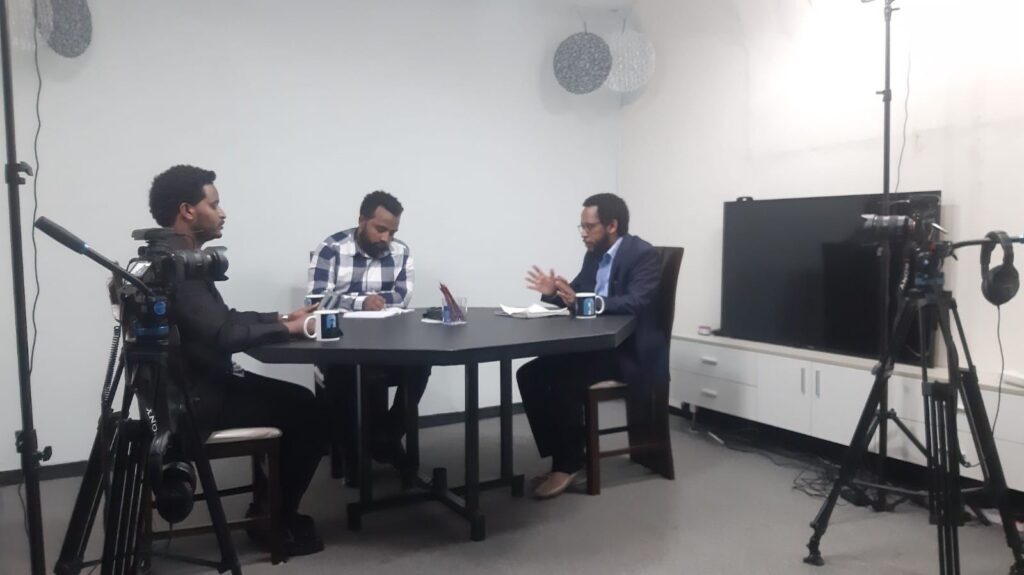
We were thrilled to have the opportunity to continue practicing our profession in exile and, more importantly, to serve as a vital source of news, information, and critical programs to our society, which was under total siege, without phone networks, internet services, and electricity. During that time, people were resorted to buying information as screenshots and audio clips from the restricted internet access available only at International Humanitarian Agency offices in the capital, Mekelle.
I strongly believe that, our online content and advocacy has been instrumental in shaping the diaspora’s fight against the Tigray war and its features; and the radio broadcasting was one important alternative source of information and voices for those back home. If we had remained in Ethiopia, our fate would have been imprisonment, and we would not have had the relative freedom to report on the important events for our audience under the genocidal regime. Being a journalist in exile has been a rare blessing that has allowed us to continue our work of reporting on the situation in Tigray and advocating for justice and accountability.

The Perils of an Exiled Journalism Practice
The challenge started not only with escaping of a brutal regime, and war but also the challenges of COVID-19 crisis that was affecting anyone moving. Mobility under COVID-19 crisis “intensified already existing mobility inequalities, revealing the uneven impacts of a pandemic among poor and vulnerable populations” as Noel B. Salazar explains.
My colleagues and I had to face flight cancellations, quarantines, mandatory COVID-19 tests with associated fees in both countries, an increase in flight ticket prices, and bribes with bureaucratic documentations. Some of them had to travel on foot by crossing the borders with the help of smugglers.
While restricted movement was considered essential due to the COVID crisis from a mobility studies standpoint, for me and many other fellow journalists and Tigrayans, going into exile was an ‘existential cry’ against repression and death as Silva argues in demonstrating some contradictions of essential and existential mobilities.
Practicing journalism in exile poses many challenges, including financial, logistical, and legal difficulties, limited access to primary sources of information, insecurity, as well as feelings of loneliness and depression.
We did not have the required media equipment or a professional studio in a secure and official location. Instead, we started reporting online and on the radio from a small studio in our residence with incomplete equipment. Most of us had to share the same living space because we could not afford to have our own rooms. Although some sympathetic individuals and the diaspora community provided occasional support, it was not sustainable, especially after three months.
We struggled to pay rent and support our staff properly, which was further compounded by our claims of independence and our willingness to criticize the Tigray regional government during a time of war. Many people were against critiquing a government that was under attack, which added a challenge to our financial request campaigns. After eight months, our radio program had to stop because the license holders were unable to pay for the one-hour daily airtime rent cost.
There were times when the journalists had nothing to eat and were hungry. They were unable to afford a room, transportation, and refugee-related documentation fees, as oftentimes it involves bribes in Kenya. Nevertheless, we had a great professional team spirit, a shared community cause, and were able to work together with great passion for many months. However, the loans I took from individuals to sustain the media still haunt me, and I am sure my colleagues are also facing similar challenges as they do not have their own sources of income.
It had been incredibly difficult for all of us to be completely cut off from our parents, siblings, and relatives due to the communication blockade in Tigray. The horrific graphic pictures and videos from the battlefield and the places of massacre by the Ethiopian, Eritrean, and Amhara joint forces in Tigray, as well as the daily news on the death toll of our fellow Tigrayans, had added immense mental and emotional pressure to an already challenging situation we were facing in Nairobi. All of us had already experienced trauma either during the first phase of the war in Tigray, or either when crossing the border on foot or when playing cat and mouse with the police in Addis Ababa and at the airport to sneak out.
Mobility is a crucial factor in establishing the authority and credibility of journalistic practices. It enables journalists to access places that the audience is unable or unwilling to reach. As exiled journalists, we have no chance to move to places in Tigray and Ethiopia and provide firsthand accounts, which could have enhanced our role in reporting and brought back information that may not have been available otherwise.
We attempted to have a correspondent in Tigray to establish the much-needed journalistic mobility to contact sources, visit actual places, attend events, and provide firsthand accounts. However, access restrictions and forcible removals had been common occurrences, as Gonen and Hoxha indicated that, it is the case in authoritarian regimes or conflict zones.
The communication blockade has made it even more challenging for us to obtain information quickly. This obstacle often forces us to rely on secondary sources, which makes it difficult to be confident in breaking news and becoming a reliable primary information provider. It also takes longer to verify information and the expensive cost of phone calls and in-person fact-checkers adds to the difficulties.
Despite the challenges faced by exiled journalists, we still have a very unique opportunity to cover stories that the media in Tigray and Ethiopia may not be able to due to the repressive nature of the regimes and the securitization of politics. We receive information from journalists, citizens, and even officials who believe that the public deserves to know the truth. This information is crucial in shedding light on the situation and holding those in power accountable.
As exiles, we are also aware of our comparative advantage in producing news analysis and other critical programs. This is what we were doing during our highest engagement in Nairobi, and we continue to persist in these efforts.
Threats Persist in Exile, We Still Have Hope
A leaked memo sent by Ethiopia’s Ministry of Foreign Affairs to the Ethiopian embassy in Nairobi at mid of November 2021 warns that Nairobi is becoming a base for false reporting entities and media outlets, as well as for masterminds of the TPLF and Oromo Liberation Army (OLA). The memo calls on the embassy to closely monitor this issue and expose their activities, and to produce an action plan and analysis to help address the problem. This gave us an alarm that they were coming after us.
Shortly after the memo was leaked, an ethnic Tigrayan businessman was abducted in broad daylight in Nairobi on November 19, 2021, and his whereabouts remain unknown. This incident caused fear and distress among us exiled journalists, leading many of us to go into hiding. In combination with the already existing challenges, this incident triggered a temporary halt in our work. This further contributed to the invisibility and financial decline of the media, which was not able to retain its entire staff when it resumed operations in March 2022 under a new name, Yabele Media.
The media was able to resume operations after I moved to Germany to study a PhD program in anthropology (and Media) at the Ludwig Maximilian University of Munich starting in March 2022.
Since then, Yabele Media, as one of the diasporic media establishments, has been producing content irregularly for an online audience on various platforms including YouTube, Facebook, Twitter, as well as for television viewers on HBS TV. Currently, three volunteer journalists, including myself as a manager based in Munich, a video journalist, and a content producer from Nairobi are working together. Unfortunately, five staff members had to leave the organization and search for other opportunities, with two still in Kenya as asylum seekers, one having migrated to South Africa, and the remaining two left to other places.
Although a secession of hostilities has been signed in Pretoria between the warring parties, there is no guarantee of its sustainability and democratized spaces in either the regional state of Tigray or Ethiopia in general may not be realized soon.
In many post-war scenarios, politicians attempt to securitize politics and social life to consolidate power and control the narrative, which could lead to limitations on media freedom and the ability to report independently.
Therefore, I am considering settling in a country where freedom of expression and the media are respected, legalizing the media, reconnecting with my colleagues, and working independently and professionally to make Yabele Media an alternative and reliable voice in Ethiopia and the diaspora. I believe that operating in exile would give us more leverage to contribute to the recovery and democratization process of our society.
In an environment where our voices could be suppressed, and our ability to report on critical issues could be restricted, operating from a safer place with freedom of the media would enable us to more effectively hold accountable those responsible for committing genocide, crimes against humanity, and war crimes in Tigray and other parts of Ethiopia, and advocate for positive change.
References:
Abhishek Banerjee (2018): To the eminent journalists: Here is what ‘co-opted media’ truly looks like, India, (https://www.opindia.com/2018/02/to-the-eminent-journalists-here-is-what-co-opted-media-truly-looks-like/)
Andrea Prat (2015): Chapter 16 – Media Capture and Media Power, Handbook of Media economics, Volume 1, Pages 669 to 686, (https://doi.org/10.1016/B978-0-444-63685-0.00016-4)
Antony J. Blinken (2023): War Crimes, Crimes Against Humanity, and Ethnic Cleansing in Ethiopia, PRESS STATEMENT, (https://www.state.gov/war-crimes-crimes-against-humanity-and-ethnic-cleansing-in-ethiopia/)
Antony J. Blinken (2023): War Crimes, Crimes Against Humanity, and Ethnic Cleansing in Ethiopia, Press statement, Secretary State, (https://www.state.gov/war-crimes-crimes-against-humanity-and-ethnic-cleansing-in-ethiopia/)
Äthiopien: Die Kämpfe in Tigray gehen weiter, Hunger und Angst halten an, Die UN sind wegen der humanitären Lage zutiefst beunruhigt, von Bettina Rühl, 16.07.2021, (https://www.riffreporter.de/de/international/aethiopien-tigray-krieg)
CPJ (2020): Ethiopian journalist Bekalu Alamrew arrested, accused of disseminating false news, Nairobi, (https://cpj.org/2020/11/ethiopian-journalist-bekalu-alamrew-arrested-accused-of-disseminating-false-news/)
CPJ (2021): Ethiopian authorities arrest at least 15 employees of 2 independent media outlets, New York, (https://cpj.org/2021/07/ethiopian-authorities-arrest-at-least-15-employees-of-2-independent-media-outlets/)
CPJ (2023): Awlo Media Center, results arranged by date, (https://cpj.org/tags/awlo-media-center/)
Esha Sarai-VOA (2020): Journalists Say They Were Barred from Traveling to Cover Ethiopian Regional Election, (https://www.voanews.com/a/press-freedom_journalists-say-they-were-barred-traveling-cover-ethiopian-regional-election/6195566.html)
Girmay M. (2020): The record shows there is genocide in Tigray, Ethiopia Insight, (https://www.ethiopia-insight.com/2022/03/21/the-record-shows-there-is-genocide-in-tigray/)
Henrik Örnebring & Amy Schmitz Weiss (2021): Journalism and the Politics of Mobility, Journalism Studies, DOI: 10.1080/1461670X.2021.1971108
Leaked Doc: Ethiopian Government to Hunt Journalists in Neighboring Countries, Yabele Media, December 2, 2021, https://yabelemedia.com/2021/12/02/4269/
M. F. Amante & I. Rodrigues (2021) Mobility regimes and the crisis: the changing face of Chinese migration due to the Portuguese golden visa policy, Journal of Ethnic and Migration Studies, 47:17, 4081-4099, DOI: 10.1080/1369183X.2020.1752640
Reuters (2020): Ethiopia bars journalists from flying to Tigray regional vote –passengers, Addis Ababa, (https://www.reuters.com/article/ozatp-uk-ethiopia-politics-idAFKBN25Y159-OZATP)
RODNEY MUHUMUZA- AP (2021): In Tigray, food is often a weapon of war as famine looms, Abi Adi, (https://apnews.com/article/only-on-ap-united-nations-africa-business-897bed43c6743c4575298ba5cf7bdd1c)
RODNEY MUHUMUZA-AP (2021): In Tigray, food is often a weapon of war as famine looms, Abi Adi, (https://apnews.com/article/only-on-ap-united-nations-africa-business-897bed43c6743c4575298ba5cf7bdd1c)
Silva, S. 2015. “Mobility and Immobility in the Life of an Amputee.” In What Is Existential Anthropology, edited by M. Jackson and A. Piette, 125–154. New York: Berghahn. DOI: 10.13140/RG.2.1.2745.7769
UN (1951): The Genocide Convention (https://www.un.org/en/genocideprevention/genocide-convention.shtml)
WHO (2022): Crisis in Northern Ethiopia, (https://www.who.int/emergencies/situations/crisis-in-tigray-ethiopia)
Yonatan Gonen & Abit Hoxha (2019) Interactions between Journalists Located in Different Sides of a Conflict: A Comparative Study of Two Conflict Zones, Journalism Studies, 20:16, 2495-2512, DOI: 10.1080/1461670X.2019.1604154
____________________________________________________________________________________________________
About the Author
Woldegiorgis G. Teklay is a journalist with extensive experience in journalism practice, teaching, corporate communication, and media management. Currently, he is a PhD student at Ludwig Maximilian University (LMU) in Germany, researching the weaponization of hate speech during the recent war in Ethiopia. He can be contacted at wldgrgs23@gmail.com

